Seugne Bosch is our lead female volunteer at F1 in Schools South Africa and a former World Finals competitor. Today, Seugne works as a cyber privacy consultant, representing a specialist, future-focussed profession. She is a role model to young females who aspire to enter and succeed in STEM industries.
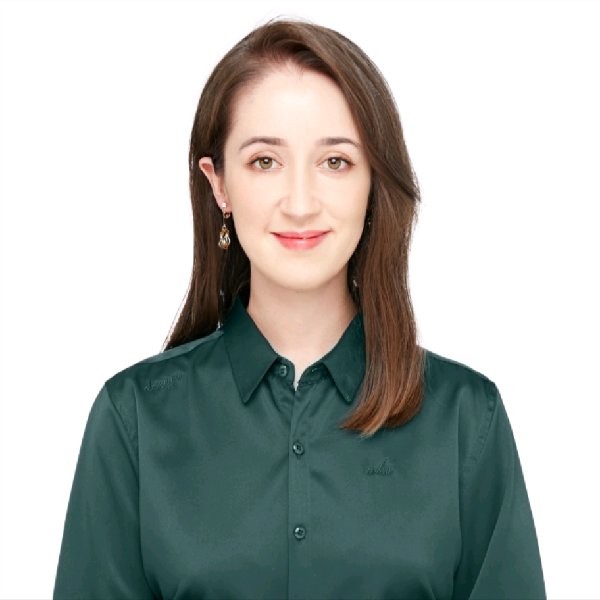
How our female lead volunteer got on track with F1 in Schools.
During high school, I was always very interested in the sciences but never had the courage to explore STEM fields - it was very male dominated and representation for women was lacking. I first heard about F1 in Schools when I was 15 years old. Being a Formula One fan from a young age, I was excited to get involved in the challenge but doubted myself.
I attended an international school in China and joined a diverse team, representing South Africa. My teammates represented their countries, being Singapore, Taiwan and Canada. It took quite a lot of courage from my side to apply because it was an all-boys team. However once I got started, I soon found out that I did actually have the required IQ and confidence to play my part. This realisation opened up to an entirely new and exciting world for me which has shaped my professional journey.
My role in the team was sponsorship management and the project management of the car design.
Highlights from her journey.
My team, Team Qi, competed at the 2010 World Finals in Singapore. Interestingly, there was a girls team from South Africa that competed in the same year and they won an award for perseverance. We won the award for best website.
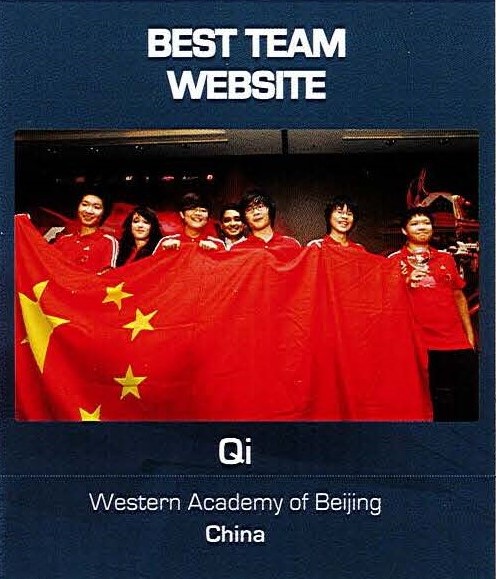
I have a ton of core memories from the experience. Two core memories that stand out for me. The one is meeting the Formula 1 drivers and Tony Fernandez, entrepreneur and founder of the Caterham Formula 1 team. The other is the hands-on experience with designing a competitive car and then presenting our design portfolio to the F1 in Schools World Finals judging panel.
Some challenges and her the team overcome them.
Most of my challenges were internal because representation was severely lacking for girls/women. It took a lot of courage for me to explore the depth of my own skills and to excel.
There are still a lot of stereotypes surrounding gender where girls are always made to believe that they are not good enough, strong enough or versatile enough from a very young age. The biggest challenge for any girl to face is to ignore all that criticism and believe that she is capable of whatever she sets her mind to achieve. I want girls to have that confidence and to contribute their perspectives and insights. Mostly, never to fear failure or feel guilty if they don’t succeed on first attempt.
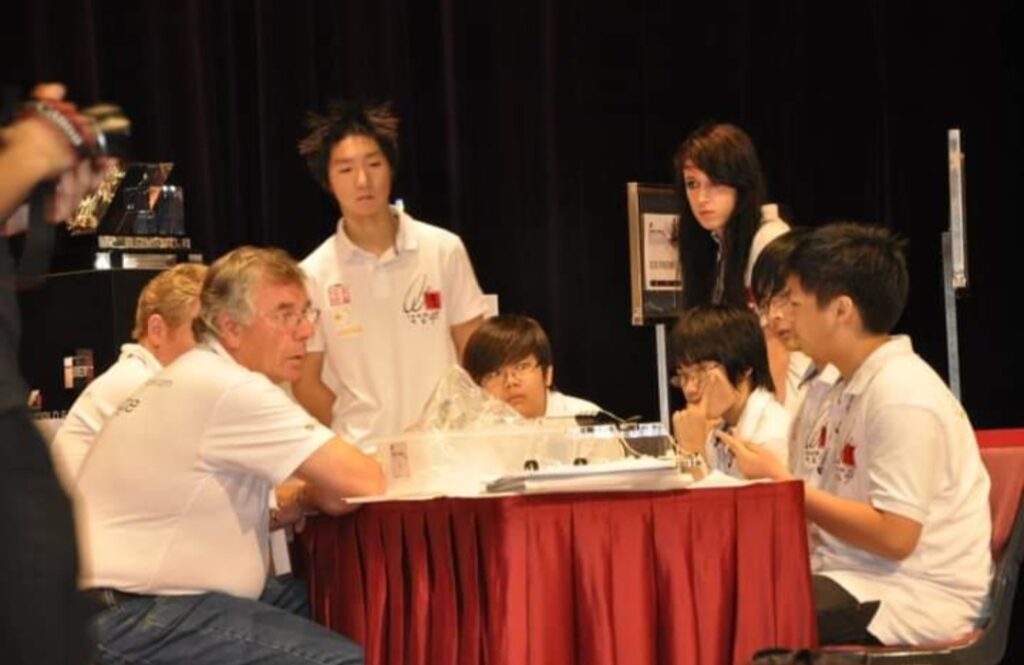
The ROI delivered to the school and to sponsors.
F1 in Schools gives learners the opportunity to explore a diverse world of career opportunities. It helps build self-confidence and presents an opportunity to showcase one’s skills. When a young person’s talent is recognised, it motivates one to excel, to innovate and this supports the team’s success. The sponsors benefited from our culturally diverse team which offered them multi-country representation, one being China and the other being our home countries.
Key learnings that she continues to apply today.
I learned a lot from F1 in Schools - it is the reason why I have the courage today to take on opportunities, even when I think I cannot do it.
You do not need to be Einstein to be able to excel in STEM fields. What matters most is passion to explore and learn new things daily. Another key message is to never be afraid to be innovative. If you have a fresh idea or a different perspective, explore it.
What participation can offer to young STEM talent in SA.
Participation doesn’t just teach students the basic skills of STEM. It shows you a world of opportunities, possibilities and, most importantly, allows students to think laterally. We need more “out of the box” thinkers in this world. Remember that diversity is key to making STEM fields thrive.
Our lead volunteer’s “Impossible” goal for F1 in Schools ZA.
An “impossible” goal would be to secure enough funding to help our South African F1 in Schools teams and participants reach their goals and dreams.
Advice to young South Africans who want to achieve extraordinary success.
Learning does not end when you complete high school or university. Never stop learning and never give up.
My motto to every girl out there is: “Take up the opportunity even if you think can’t do it”.

Kliptown Youth Centre (KYP) encourages children to be active community members, to have dreams and to promote hope for a brighter future. KYP was started by co-founders who are good friends, connected by a big vision to shift the spirit within their Kliptown community from "survive" to "thrive”. Their shared passion is changing lives.
In 2021, KYP became an early adopter of the F1 in Schools programme. This leap of faith, supported by F1 in Schools South Africa, introduced the world of racing to a place where 75% of community members are unemployed and where "Hope" is in short supply. Co-Founder, Thulani Madondo shares insights from KYP’s F1 in Schools journey.
KYP’s part in the F1 in Schools SA challenge.
In the heart of Soweto, where opportunities often feel out of reach, this programme is breaking barriers and igniting the imaginations of our young learners. The F1 in Schools Primary STEM programme has proven to be ground-breaking, enabling our learners to explore race car design and build on a miniature scale, encouraging practical application of maths and science learning.
Highlights from their journey so far.
For many people in our community, the idea of Formula 1 is as distant as the stars. This initiative is a gateway for learners to discover a whole new world of possibilities. Our learners have taken a deep dive into the complex process of designing their own miniature race cars, using customised building block materials, including paper-based cut-out chassis, small wheels and axles. Through hands-on activities such as designing cars, experimenting with color mixing for paint and conducting reaction tests to assess speed, they have gained invaluable technical skills while experiencing the sheer joy of creation and discovery.
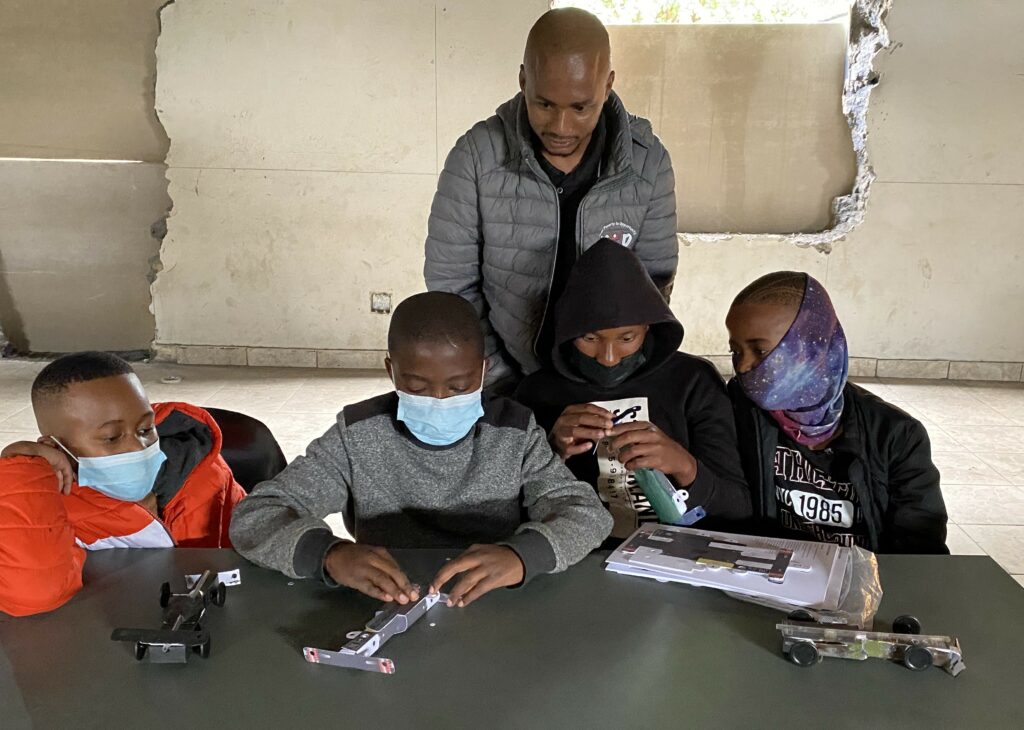
We run the Primary STEM programme which is safe and low in complexity for learners and teachers. Resourcefulness and commitment keeps the programme going and is generating high motivation. We have one roll out track and use the hand held pump for propulsion.
The ROI being generated for the school and sponsors.
We are grateful that this programme provides the kind of stimulation that inspires our learners to dream big. We are seeing the positive impact of this programme on participants' motivation for schoolwork.
Our learners have started to experience the world of professional racing, and can access the exhilarating world of motorsports at Zwartkops Raceway and Kyalami, thanks to F1 in Schools South Africa, supportive partners and industry experts. Meeting with engineers, mechanics, drivers and racing team owners has opened participants' eyes to the diverse career opportunities within the racing industry, sparking a new passion for exploration and learning.
Some challenges and how they are being tackled.
Despite our efforts to promote equal participation, there is still a stereotype that racing cars is a “man's sport”. We have to double our efforts to encourage young girls to participate and to expose them to female role models in the field. Our female IT Educational Coordinator, Jane Moepi, has a background in engineering.
The other challenge is combining the program into our curriculum without disturbing the academic flow requires careful planning and coordination.
The “Impossible” goal for F1 in Schools ZA.
The ultimate vision is for Team F1 KYP to participate in the F1 in Schools World Finals. To get there, we need to secure the necessary funding and resources to turn our goal into reality. We are working with Future Ones NPC and partners to make this happen!
Advice to young South Africans who want to achieve extraordinary success.
As someone who continues to unlock his vision for a thriving future, Thulani believes that, "To accomplish great things, it takes hard work, vision, and determination. Always remember that what gets measured, gets done. Nothing in life comes easy, so do the work and trust the process."
Play Your Part
Join the F1 in Schools South Africa community. participant, Sponsor, Partner or Volunteer. Visit the Future Ones NPC website and Let's Talk.
See the F1 in Schools programme in action at KYP:
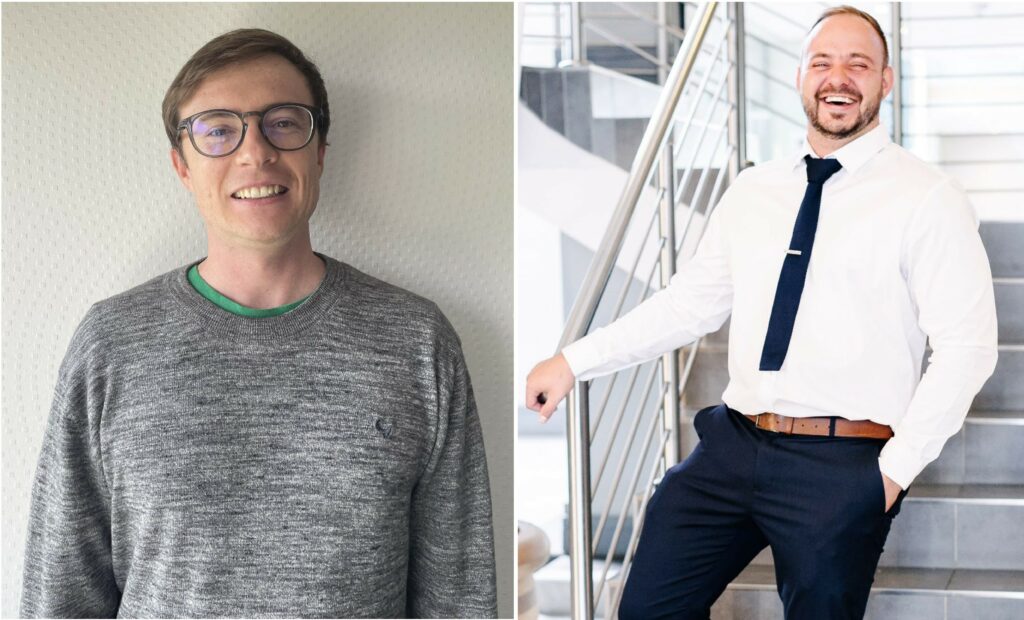
Rohan Laas (left) and Helgaard Janse Van Rensburg (right) are former F1 in Schools World Finals competitors and now lead volunteers at Future Ones NPC. These two high performers are committed to sharing their knowledge and experience to enable next generation success through excellence in applied STEM.
A decade and half later, they share their story with shining eyes and wide smiles, recalling their "make a plan" journey to the 2009 World Finals in London.
How they got going.
Helgaard led the team and Rohan looked after the finance, marketing and graphics. This is almost similar to what we do in in our current jobs. Helgaard is the co-Founder and R&D Director at EX Management Systems while Rohan wears a finance hat at a leading beverage company in South Africa.
F1 in Schools was introduced to us at another local school over a weekend in the Free State. With very little information or knowledge, we submitted a car concept design and team structure. From there we were selected to continue to the next stage and progressed from there. All we did was to stay focused, while we had fun figuring it all out.
Highlights from their journey.
Our initial thought was, "what is this?". The whole thing was a foreign concept - we knew a bit about Formula One but knew nothing about the F1 in Schools programme. We know that we had no experienced but that did not stop us.
Our team, Double S Racing, collaborated with a team from Germany. We had to set up, self-manage and self-organise the teams with limited process guidelines. It was our teacher who figured things out and shared her own learnings with us, making sure that we were always aligned as a team. This support was motivating.
We faced numerous technological challenges, such as learning how to use CAD design software, CNC machines, wind tunnels and how to prepare digital presentations.
What amazed us as being part of the World Finals event, was seeing how advanced other countries were, especially the investments companies made in their local schools. For example, our collaboration team from Germany had access to one of the biggest motor manufacturers in the world who assisted with our car's paint work. This would have been very difficult to accomplish as a standalone team in South Africa. Also the workmanship and quality of presentations of the other international teams were phenomenal.
The other two South African teams were from Pietermaritzburg and Stellenbosch. They competed independently and not through collaboration.
Some challenges and how they tackled them.
There were challenges and we had to cross them through trial and error because there is no blueprint.
We had some initial designs flaws and re-designed our car multiple times until the design was machinable. From the technical to the thinking - we had to learn to present our design, ideas and concepts to the sponsors and judges. We learnt about fundraising, speaking to sponsors and managing finances. Time management was a big factor to manage school, sports and personal/social activities. We enjoyed the challenges simply because we worked well in our team. The team leader played an important role - this was Helgaard's job.
The ROI delivered to the school and to sponsors.
We were the only school in our town, Sasolburg, that participated and this attracted great publicity, especially after we advanced to the international (World Finals) competition. With the support of the University of the Free State, we were able to get some international and local exposure.
Key learnings that they continue to apply today.
We experienced the high competence of participants from other countries. Today that insight into world class excellence motivates us to showcase South Africa's capability which stacks up with international standards if we put in consistent effort daily and keep performing at those high levels.
What participation can offer to young STEM talent in SA.
Firstly, it forces you to think outside the box and to come up with a plan otherwise you will fail. As the saying goes, "If you fail to plan, you are planning to fail".
Secondly, international exposure opens your eyes to endless possibilities of what South Africa can achieve, and also learn, in terms of technological advancements. This type of exposures shows that us South Africans who don't have the means and privilege can still compete at the same level with the best of the best.
Our lead volunteers' “Impossible” goal for F1 in Schools ZA.
Our impossible goal is to involve the Engineering Council of South Africa (ECSA) and to mentor upcoming prospective engineers.
Then have as many schools as possible participating, unlike the few schools during our time, with bigger sponsors so that we can have a proper national competition which includes many more pupils and teams across South Africa.
This opportunity can awaken an unknown interest you never knew you had and maybe produce the next Enzo Ferrari producing the first South African design and completely fabricated car right here in Mzanzi!
What an SA team will need to do to reach and win at the F1 in Schools World Finals.
The reality is that you have to push yourself to your limits and only seek the best, there is absolutely no space for being mediocre. Obstacles will always be there but those should not deter you.
Funding will probably be the biggest obstacle but keep at it. Approach international brands where possible, offer them a value proposition. In our experience and unfortunately, local and smaller businesses did not see the value initially so we had to approach international brands. Aligning our values / visions to sponsors made it an easier sell.
Research on what other businesses do and identify what success looks like. Research marketing, branding, technology, performance and measure your team against the best examples out there. Look at printed or digital magazines for presentations, the paintwork must be of a quality that would go on a road car and branding and sponsorships must be approached professionally. Public speaking is an important skill when dealing with sponsors. Look for ways to improve and apply those learnings because that is what gets teams to the World Finals.
Get comfortable with technology and learn how to use the right software so that it sets your designs and presentations apart from others. Know the technologies that affect car performance, for example the effect of paint, wheel friction and other design aspects.
The competition rules are strict. Learn them, live them and love them. This will aid you in applying the rules to your designs and also in identifying the restrictions posed on the teams / vehicles.
How you work as a team is important - identify the team's weaknesses and strengths and use them for your team's success. Relationships in the team must be managed. Good relationships with suppliers and external experts or mentors will help to maximise what the team can deliver within the budget and using the skills available. Involve local business who support the team in achieving the goal.
Lastly, have a business or entrepreneurial mindset. Set a team mission and have a plan - it will guide you on decision making and allow for easier buy in.
Even if you don't win at the World Finals, if you apply these suggestions, you will be very employable and highly experienced by the time you enter the job market.
Advice to young South Africans who want to achieve extraordinary success.
Roshni Gajjar speaks to the head of F1 in Schools Germany, a former participant and proud leader of the country that won the 2024 World Finals in Singapore.
Watch on YouTube or listen in on Apple Podcast.
F1 in Schools South Africa is available through Future Ones NPC - purpose-driven STEM to enable "Pupil-to-Pinnacle" success.
Ready to Play Your Part as a school, team. sponsor or volunteer? Let's Talk.
Roshni Gajjar speaks to former F1 in Schools World Finals participant and category winner, Aashish Salian about what F1 in Schools meant to him as a pupil, a STEM professional and a rising performance engineer.
Watch on YouTube or listen in on Apple Podcast.
Ready to Play Your Part as a school, team. sponsor or volunteer? Let's Talk.
The future of SA motorsport is bright with high potential! We got to meet some very interesting and inspired STEM minds at the 2023 Simola Hillclimb in Knysna.
What did we chat about? F1 in Schools of course!
Thanks to captains of SA motorsport, industry leaders, teams, passionate school pupils, parents, professionals, seasoned technical experts, members of media and diehard fans from racing around world.
Thank You for sharing the pupil-to-pinnacle vision with such positivity and enthusiasm! F1 in Schools ZA is now in full motion!
If you missed out on the launch, read about Future Ones NPC and the "pupil-to-pinnacle" quest on our website: https://stratute.co.za/future-ones/
Play Your Part. It takes at least four years to reach World Finals readiness. We ask schools and sponsors to commit to the vision so that we can see a South African team at the 2027 F1 in Schools World Finals.
Get On Track for Success! Registrations now open. Early adopter schools will get a head start and save on costs.
Let's GO🔴🔴🔴🔴🟢
🟢Schedule a call - Let's chat to your school principal to explore fit-for-school
🟢Build a proposal - Let's help your school get on track with funding and equipment
🟢Form a team - 6 participants aged 6 to 9 years
🟢Participate - Run the in-class, extra curriculum programme
🟢Compete - Race and win to qualify for the World Finals
🟢Stay on Track - success takes time. Never give up!
Join the Fanzone and follow the journey:
Linkedin 👍🏽- https://www.linkedin.com/company/f1inschools-south-africa/
Twitter 🔁 - @FutureOnesSTEM
Telegram Group ↗️ - F1 in Schools ZA
Email 📤 - futureones@stratastute.co.za
F1 in Schools South Africa is driven by Future Ones a not-for-profit company, official license holder for the challenge. The programme offers a pathway for South African pupils to direct their talent, passion and career aspirations through a global STEM challenge.
F1 in Schools draws on design, make, test and race principles from the pinnacle of motorsport. This gives pupils, aged 6 to 19, the opportunity to apply maths and science theories while having fun, learning about teamwork and experiencing the thrill of high-performance competition.
The challenge exposes participants and teams to CAD design, applied physics, CAM, marketing, finance, sponsorships, leadership, communication and much more. The Primary STEM challenge offers an affordable entry point to ignite the passion at primary school level. Thereafter, the competition begins as teams shifting gears from paper-based cars and hand-held pumps to model blocks and gas cylinder propulsion. Technical and Competition Regulations govern the programme to ensure consistency across all teams and all countries.
"We are delighted to support the F1 in Schools programme as it continues to inspire and educate young people in STEM subjects, which are critical not only to our sport, but can have a huge impact on the wider society."
- Stefano Domenicali, Chairman and CEO, Formula One
Quality education and decent jobs are key to South Africa's sustainability. F1 in Schools offers a pathway for young, high achievers in South Africa to reach for their dream careers in motorsport and allied industries, starting in the humble classroom. In SA, partnerships with universities, industry and motorsport teams support the sharing and transfer of technical STEM knowledge, racing experience and professional skills. Every generation can get involved, from school pupils and sponsors to retired STEM experts, teachers, professionals and racers. Teams can participate only or choose to compete in the national competition. It all comes down to sponsorships.
The F1 in Schools Primary STEM pilot programme was introduced at a youth center in Johannesburg in 2021, with the support of F1 in Schools HQ. This pilot programme presents a compelling case to expand the reach of F1 in Schools across South African schools, including community centers. Universities also have a role to play in bridging the school-to-varsity transition.
"Offering a way to learn Science, Technology, Engineering and Maths related subjects in such an exciting way is achieving great results and we know we are increasing the intake of students into Engineering careers."
- Andrew Denford, Founder and Chairman, F1 in Schools
Schools and teams must raise sponsorships to buy equipment, consumables and to compete. Future Ones NPC administers the programme, runs the competition in compliance with the Rules, administers the Technical Centre and oversees safety, ethics, good governance and fair play across its value chain. Income generated through sponsorships is invested in the administration, promotion and growth of the programme and competition. A central treasury function supports this objective, to reduce the risks of poor governance. Future Ones procures all custom-made equipment from the official supplier.
Play your Part in unlocking the "Pupil-to-Pinnacle" vision if you, your school or your organisation prioritises STEM education, diversity & inclusion and excellence. The foundation for building and sustaining a vibrant industry for STEM and motorsport professionals in South Africa, starts here. Join our quest.
F1 in Schools the only global multi-disciplinary challenge in which teams of students aged 9 to 19 deploy CAD/CAM software to collaborate, design, analyse, manufacture, test, and then race miniature compressed air powered cars made from F1 model block. The journey can start at 6 years old with the cost-effective, fun Primary STEM programme.
It is a unique global platform, fully supported by the Formula One community and teams.
Now in South Africa! Join the Pupil-to-Pinnacle challenge.
Play your Part. Let's GO!